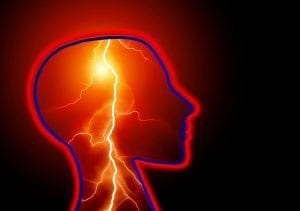Epilepsy
What is epilepsy?
Epilepsy is a disorder of the central nervous system (CNS) that is characterized by abnormal brain activity. This activity has the potential to cause seizures, unusual sensations, strange behavior, and a loss of awareness.
Epilepsy can affect anyone, whether they are male or female, any age, or any race or ethnicity.
What are the symptoms of epilepsy?
Symptoms vary depending on the affected individual. There are different types of seizures, which bring their own symptoms.
One may have a focal seizure, meaning there is abnormal activity in only one portion of the brain. It is possible that one will not lose consciousness during this seizure, and they will experience abnormalities of their senses, tingling, flashing lights, dizziness, or an involuntary jerking of a body part. If consciousness is lost, people will not respond to stimuli and they will perform repetitive movements.
The other form of seizure is generalized seizures, which impact the entire brain. There are six types of seizure within this category: absence, tonic, atonic, clonic, myoclonic, tonic-clonic. Symptoms vary between them, with effects such as staring into space, subtle body movements, stiffening of muscles, falls, jerking muscle movements, loss of bladder control, biting the tongue, and loss of consciousness.
It is important to get help when having a seizure, as they can lead to complications. During a seizure it is possible to fall and injure oneself. If one is driving a car, there is a high risk of car accidents as well. Swimming or taking a bath both hold the risk of drowning due to a seizure. Complications may happen during pregnancies as well. People with epilepsy are also more likely to have emotional health issues. Other conditions may arise due to epilepsy, such as status epilepticus or sudden unexpected death in epilepsy (SUDEP).
What causes epilepsy?
There are many things that can cause epilepsy, such as genetic mutations, brain conditions, head trauma, prenatal injury, developmental disorders, and infectious diseases. For about half of those with epilepsy, there is no known cause.
Risk factors may also play into this condition. The onset of symptoms usually occurs during childhood, although it has the potential to affect people of any age. Dementia, strokes, brain infections, and vascular diseases are all conditions that can lead to epilepsy as well. If there is a family history of epilepsy, there is a higher chance of being affected. Head trauma can also lead to this disorder.
How is epilepsy diagnosed?
A physical examination is the first step in a diagnosis, which is followed by a multitude of tests to discern the cause. Doctors may perform blood tests, neurological exams, EEGs, CT scans, MRIs, PET scans, SPECT, and neuropsychological tests.
What are the treatments for epilepsy?
Medication is the main form of treatment for epilepsy. Anti-seizure medication often allows people to live without seizures, but it may be difficult to find the correct medication for you.
If medication does not work and the seizures are all caused by a small portion of the brain that does not directly impact necessary functions, surgery may be performed to remove that part of the brain.
Other forms of treatment include vagus nerve stimulation, a ketogenic diet, and deep brain stimulation.
Where can I find out more about epilepsy?
Epilepsy Articles

Rare Community Profiles: Breaking Barriers: How Nicole and Emma Offer Hope Amidst a Dravet Syndrome Diagnosis

Presymptomatic Sturge-Weber Syndrome Treatment Reduced Seizures for Young Girl


VNS Therapy Reduces Seizures for Teen with Aicardi Syndrome

Rare Community Profiles: Mahnaz Asgharnejad Discusses Data on Soticlestat for LGS and Dravet Syndrome


FDA Grants Orphan Drug Designation to Ganaxolone for Lennox-Gastaut Syndrome







